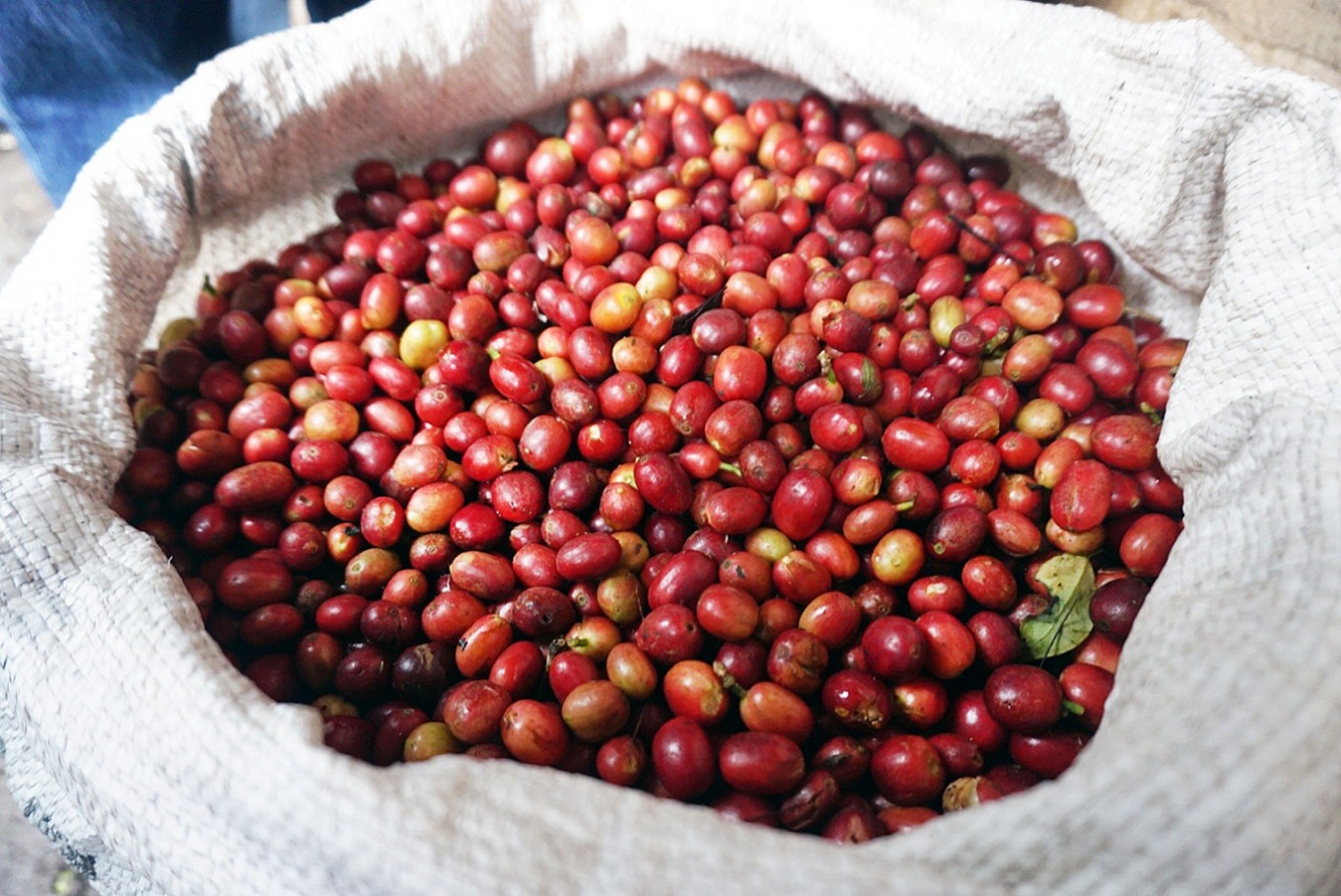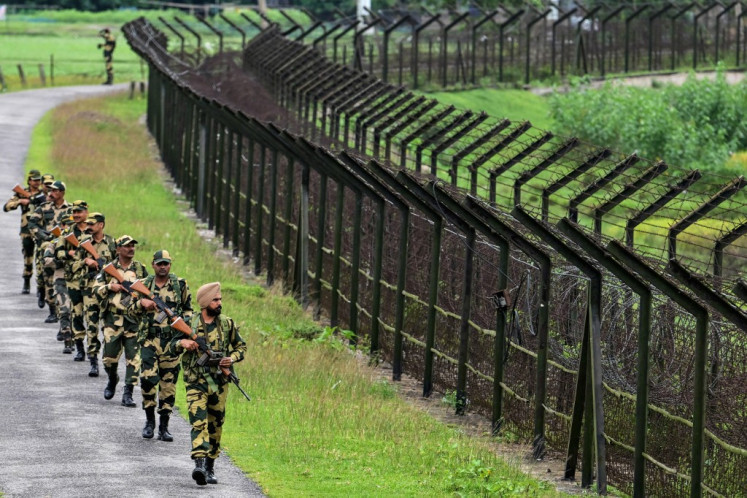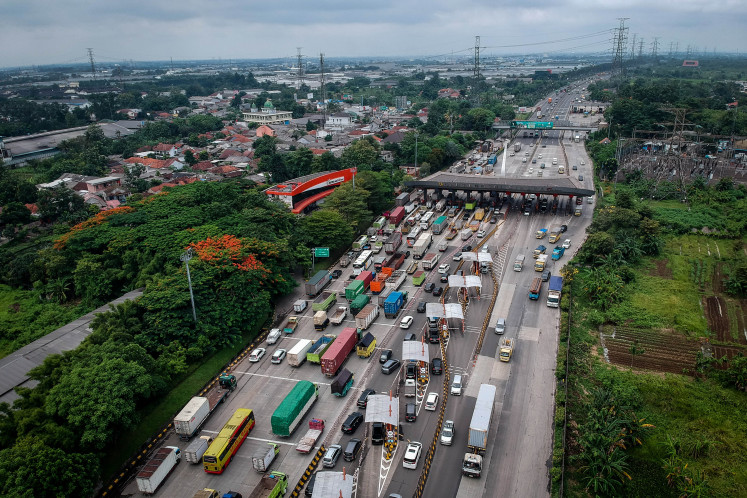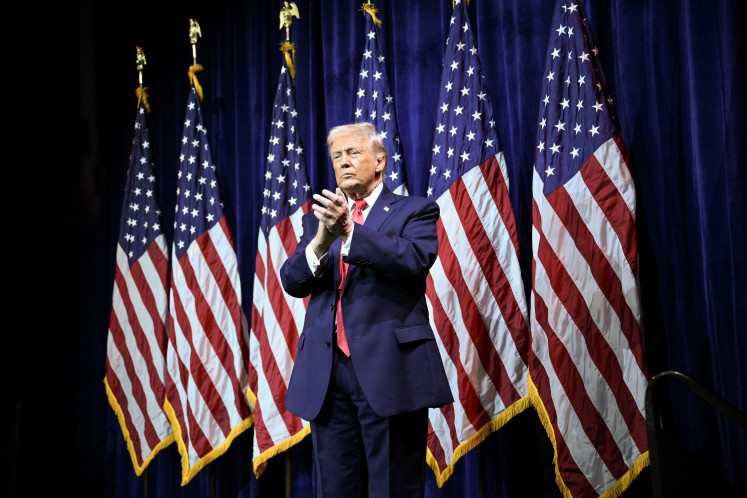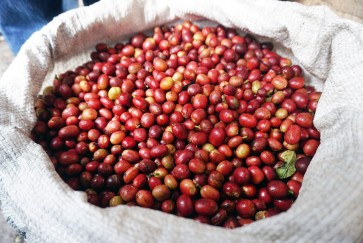Popular Reads
Top Results
Can't find what you're looking for?
View all search resultsPopular Reads
Top Results
Can't find what you're looking for?
View all search resultsLet's build 'Coffee for Earth' climate campaign
By not supporting the Paris climate change accord, Trump in the long term will abolish coffee.
Change text size
Gift Premium Articles
to Anyone
U
nited States President Donald Trump’s announcement to withdraw from the Paris climate change agreement led to a surge in Google Search for the words “climate change.” However, we cannot say that this kind of curiosity about climate change will automatically raise awareness of the issue, but at least the “Trump effect” can be a blessing in disguise: from only searching the words “climate change” to actual consciousness on the issue.
Protests against and condemnation of the decision of the US has been massive, but there was one smart commentary in fortune.com on June 14 written by Mike Hoffmann: “Trump may have just started the end of coffee.” Hoffmann, executive director of the Cornell Institute for Climate Smart Solutions, suggested that by not supporting the Paris climate change accord, Trump in the long term will abolish coffee, a beverage that 60 percent of Americans, more than 192 million people, depend on.
Research suggested that by 2050 because of higher temperatures and altered rainy seasons in coffee producing countries, half of the coffee yields will be gone. Hoffmann’s point on the bleak future of coffee might make a more striking punch on raising awareness of climate change among Americans than images of melting snow in Greenland.
Coffee is so close to Americans and to the world. The value of total coffee exports is US$19 billion per year, the world’s second export product after crude oil. According to Wikipedia, more than 2.25 billion cups of coffee are consumed in the world per day. Most consumers are in non-coffeegrowing countries. More than 90 percent coffee of production is in developing countries and Indonesia is number four. About 25 million of our small producers’ livelihoods depend on coffee.
Research released by the Climate Institute in September, “A Brewing Storm: The Climate Change Risks to Coffee,” is a wake-up call for coffee drinkers. They can start raising consciousness about choosing coffee brands that are carbon neutral and provide fair compensation to farmers and communities and support an increase in farmers’ knowledge about climate change and how to adapt.
For Indonesia, coffee is a strategic agricultural product, as well as everything relating to the Earth: the soil that grows coffee plants and the ecosystem that supports coffee plantations. Climate change has made the Earth suffer. Raising awareness of coffee sustainability is about a growing concern for soil, the ecosystem and microclimates. “Coffee for Earth” (#CoffeeforEarth) can be a powerful campaign theme against climate change.
Indonesia can take the lead on this movement or acts of collaboration because Indonesia has various narratives about the origins of coffee. Narratives can help convince people about a certain cause.

